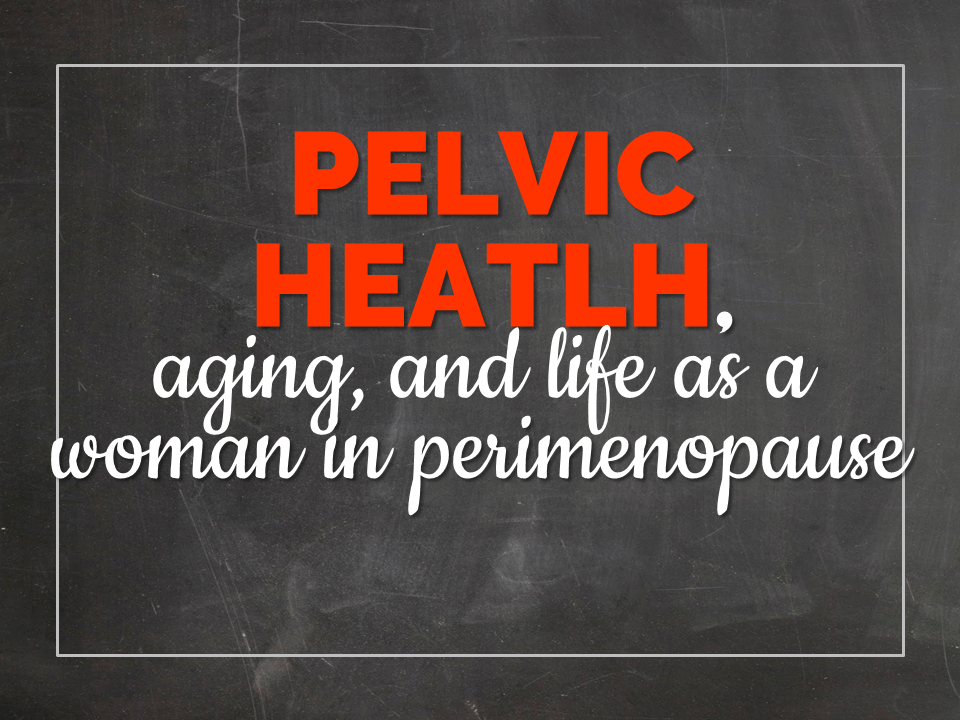We had a great discussion.
It started with pelvic health in menopause, but ended with some profound insights into aging.
As women.
On Wednesday evenings I meet with my BF2BF coaching group.
I look forward to this hour I spend with these amazing women each week.
Because I know there’s going to be some good discussion, great insights, and some laughs, too.
But this week was special.
We talked about pelvic health in perimenopause and menopause.
It brought up things we don’t usually discuss… with anyone.
Vaginal dryness, urinary incontinence, bladder infections, and more.
It made me realize that we rarely get the opportunity to bring these things up and discuss them.
Yet, they affect almost all of us.
And these pelvic “symptoms” are part of what’s now being referred to as GSM.
Genitourinary Syndrome of Menopause.
It’s basically a collection of all issues that arise in the pelvic area due to the drop of estrogen in the transition to menopause.
When we think of this transition, what usually pops into our minds are hot flashes and mood swings.
But there’s so much more.
And most of it isn’t so easy to talk about.
As a result, many of us are in the dark about what the transition to menopause can bring until we’re right in the middle of it.
And even then, we’re not sure if it’s menopause or just something wrong with us.
So, when you can openly discuss these things and normalize them, it takes much of the worry and embarrassment out of them.
And we also realize that there’s support, remedies, and even solutions to many of them.
Menopause, after all, is a natural part of our lives.
And it rarely happens seamlessly in our modern, busy world.
It can be messy.
Yet somehow, we’re expected, by society and ourselves, to carry on as if everything is status quo.
But it’s not.
Peeing when you laugh, sweating through a hot flash, and sore, achy joints aren’t easy to ignore.
And in fact, they may be a sign that you need to pay more attention.
Because when we don’t, your body has a tendancy to scream louder.
Menopause is usually a tougher transition for those women who experience high levels of stress, are out of shape, and are without support.
So, it’s a time to take care of yourself.
Love on yourself.
And get the support you need.
Find a doctor who’s educated in perimenopause and menopause, or make an appointment with a physio who specializes in pelvic health, or join a group like BF2BF where you can openly discuss issues and solutions.
As our discussion last night winded up, there were three insights that stood out.
- Accept that our bodies are aging, and menopause is part of that process
- Live as though aging is a privilege, each day we get is a gift
- Have a sense of humour about all of it
I think these are great guidelines to grow by.
And as our journey continues on this road through menopause, remember it’s not a downhill slope.
In fact, the journey isn’t about the road at all.
It’s about the view.
Keep looking around you as you move forward,
Debbie
P.S. Looking for support through your perimenopause or menopause experience? Let’s talk.


